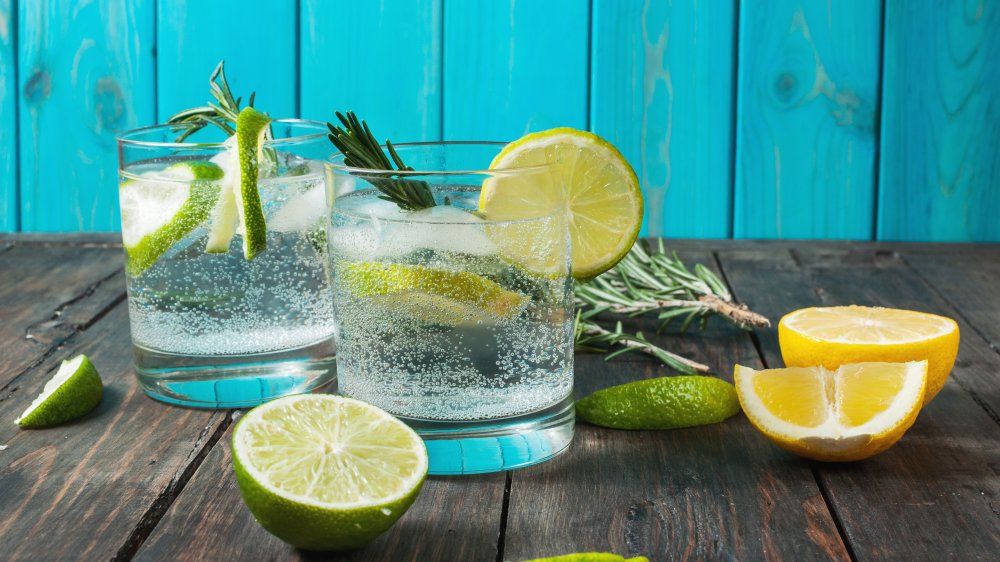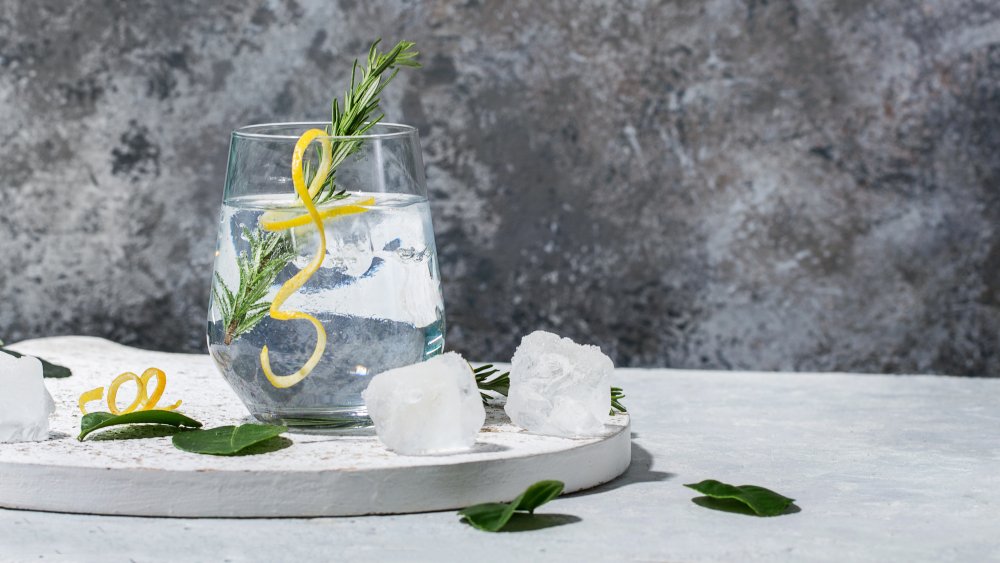When You Drink Tonic Water Every Day, This Is What Happens To Your Body
Tonic water — which goes with gin like peanut butter goes with jelly – has quite the interesting backstory. While quite a few soft drinks, including Coke and 7-Up, have been thought to have medicinal properties, tonic water gets its flavor from quinine, an actual drug that Live Science says is still used to treat malaria.
Tonic water originated in 19th century India, a time when that country was governed by the British. It was a British army officer who decided that quinine + water + gin makes the medicine go down in a most delightful way, even better than a spoonful of sugar. You'd think that being made with medicine would make tonic water super-healthy, wouldn't you?
In fact, the opposite may be true. Not only would you have to drink about 20 liters of the stuff to have any impact on a potential case of malaria, but it might come with some unpleasant side effects. In fact, Harvard Women's Health Watch notes that the FDA warns against using quinine to treat leg cramps or muscle pain since this drug can increase the risk of heart rhythm disturbances and bleeding.
Tonic water may lead to weight gain
While the amount of quinine contained in malaria is too low to have much impact on your health unless you're guzzling gallons of the stuff, it comes with the same downside as any other type of soda. Most commercially-produced tonic water is made with sugar to counteract the bitterness of the quinine. According to the USDA Food Data Central, 12 ounces of tonic water contains 32 grams of sugar as well as 32 grams of carbohydrates, 124 calories, and 44 milligrams of sodium. If you compare a similar serving size of a non-diet cola beverage, you'll see that cola has around 156 calories, 38.5 grams of carbs, and 37 grams of sugar, so tonic water comes out just slightly ahead.
When you look at the sodium levels, though, this is where tonic water is at a decided disadvantage: Cola's only got 11 milligrams, so just one-quarter the level of tonic water. Should you be concerned about this? Well, maybe. The newest Dietary Guidelines for Americans (via the CDC) recommends you consume no more than 2.300 milligrams of sodium daily, and while you're unlikely to reach this level from tonic water alone, every little bit adds up. According to the American Heart Association, excess levels of sodium (they recommend staying under 1,500 mg) can lead to water retention, along with puffiness, bloating, and weight gain.
Our verdict: Avoid tonic water as a daily drink if you're concerned about your waistline.

